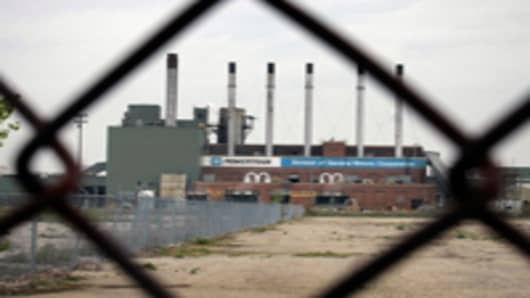Multinational companies in several sectors are warning of supply-chain disruptions, after the earthquake, tsunami and nuclear crisis in Japan.
General Motors became the first international group to announce a direct impact on production after the disasters. The US carmaker announced that it would halt output from Monday at an assembly plant in Louisiana due to a shortage of parts from Japan. The company said it had sufficient vehicles to meet customer demand.
Sony Ericsson, the smartphone joint venture between Japan’s Sony and Sweden’s Ericsson, said the earthquake would affect its supply chain and German carmaker Volkswagen warned of a possible medium-term components shortage.
One person close to Nokia, the world’s largest mobile phone maker, said it anticipated disruption to its supply chain. The company declined to comment. In 2010, 15 percent of the components in its handsets were sourced in yen.
Sony Ericsson said: “Although the full impact of the current situation on our business will take additional time to assess, [we] anticipate disruption to [our] supply-chain operations.”
The company is trying to source alternative components from manufacturers outside Japan. It faces a further problem as the country is one of its important sales markets.
iSuppli, an analyst firm, said that some Apple components, including flash memory and a thin battery used in the iPad 2 tablet, came from Japan and it warned that the company might “have difficulties obtaining this battery, and it may not be able to secure supply from an external, non-Japanese source”.
Apple declined to comment. Most flash manufacturing facilities are in regions not yet affected by the quake and tsunami but problems with power, transport or other issues could affect supply for the iPad 2.
Martin Winterkorn, VW’s chief executive, would not rule out that Europe’s top-selling carmaker could be hit by supply shortages in the next few weeks.
“We are worried and we have to monitor this every day,” he said, adding that VW saw no near-term supply problems.
Mr Winterkorn said the group was concerned about its Japan-sourced gearboxes as its Japanese supplier faced repeated power disruption at its plants.
Gary Lynch, head of supply-chain risk management at Marsh Risk Consulting, said most disruption would not come from the physical destruction of production facilities, but from transport problems and a lack of energy supply. “A multinational company should [assume] its business [will be] severely disrupted for an extended period.” He said the high-tech, automotive and steel industries would be hit first.
Fred Smith, chief executive of FedEx , the world’s largest cargo airline group, said there might be some “pinch points” in supply chains in Japan, with “some effect” on automotive and high-tech production.
Intel , the world’s largest chipmaker by sales, and Qualcomm , the biggest supplier of chips for phones, said the earthquake would not hurt production. Motorola Mobility and Research in Motion , maker of the BlackBerry, said they saw little or no impact on their supply chains.


